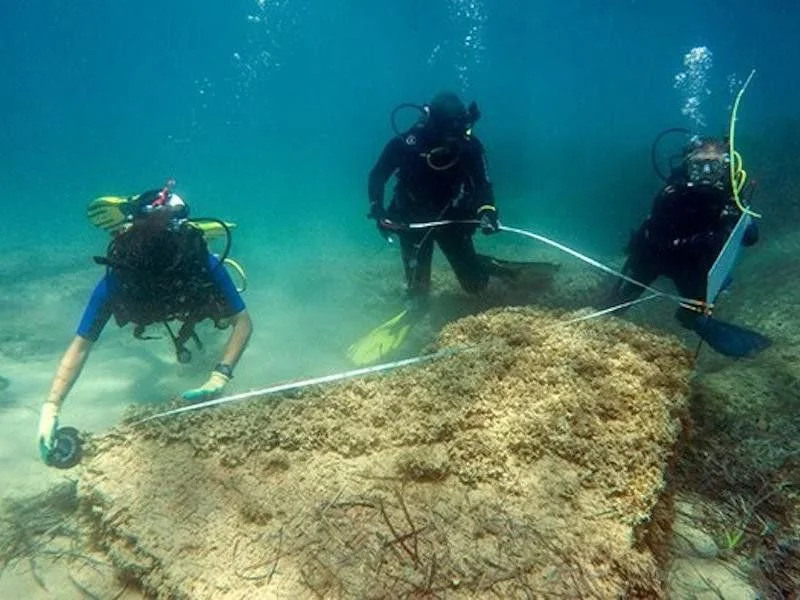In search of gold? Looking for the next gold rush? The oceans are a good place to look, however, it's not as easy as panning for gold.
Ocean waters around the world contain about 20 million tons of gold in them. When we say "in" that is meant literally, there is gold in ocean water. Unfortunately, the concentration lies on the order of parts per trillion, making it extremely difficult to get.
Based on today's spot price of gold at $42.51 USD per gram, that amount of gold would be worth roughly $771 trillion. Compare that with the United States gross domestic product (GDP) in 2016 of 18.57 trillion and its 41 times. Alternatively, you can compare it to the world domestic product of $78.28 trillion in 2014, almost 10 times the entire world's domestic product.
Needless to say, there's a lot of money to be had just in gold within the world's oceans. However, there's the monumental task of removing the gold from vast amounts of seawater. Each liter of water would contain approximately 13 billionths of a gram of gold.
Currently, there's no cost-effective method to remove the gold from seawater and be profitable. However, that didn't stop many eager inventors and investors both legitimate and scammers. In the 1890s pastor Ford Jernegan came up with a plan for a "Gold Accumulator" in a fever dream. The plan was to extract gold from the Long Island Sound using a process involving mercury and electricity treatments.
Jernegan started the Electrolytic Marine Salts Company and convinced enough wealthy investors to raise $1 million (about $26 million in today's dollars) in cash. The company was off and running, building a large gold-extraction operation in Lubec, Maine, far away from the watchful eyes of their investors. By 1898 investors began asking questions and wanting evidence the plant worked. Shortly thereafter Jernegan disappeared with cash in hand and leaving behind a useless contraption.
Since then a number of individuals and institutions around the world have attempted to separate gold from seawater. From post-WW1 Germans attempting to refill their coffers to Dow Chemicals to Columbia professor Colin Fink.
The list goes on and on, but they all have one thing in common: none were able to economically extract gold from seawater. However, we can be assured that inventors will continue to attempt to extract this massive amount of gold from the ocean. The prize is just too big not to have interest and perhaps one day one inventor or company will have the breakthrough necessary to make extraction profitable. Until that time, it's a pipe dream for the most creative wealth seeking inventor.










